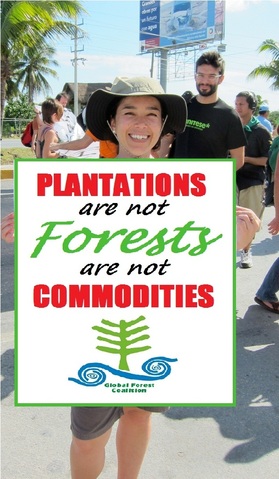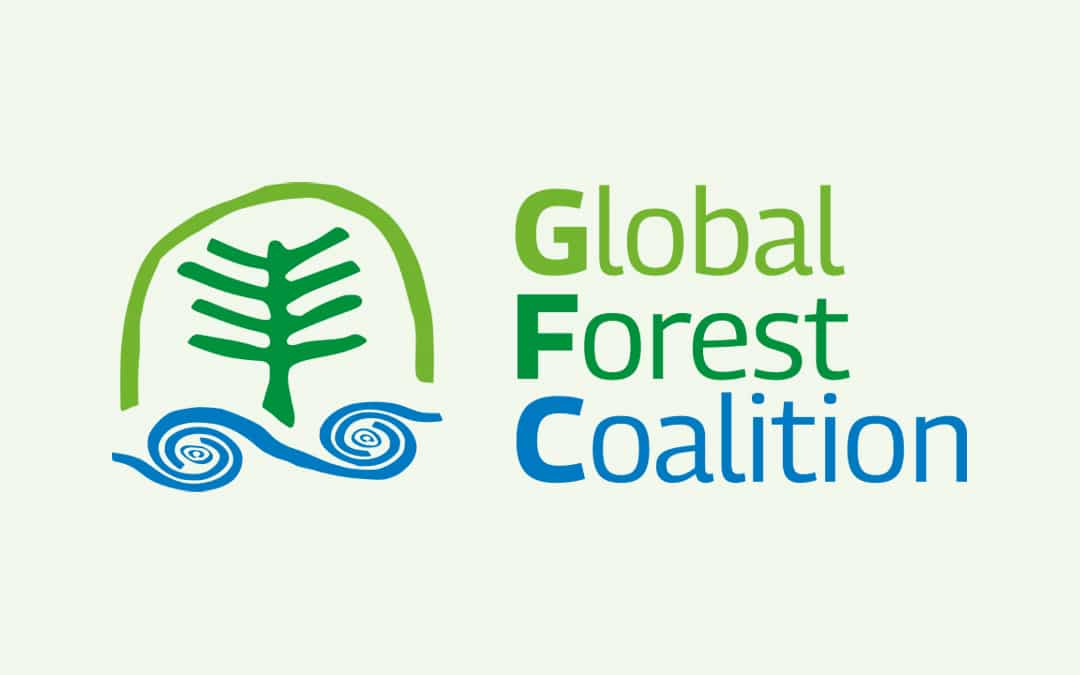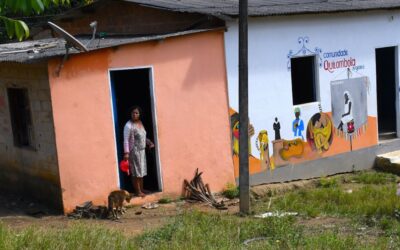
New York, 24 January 2011: At the opening of the 10th session of the UN Forum on Forests today in New York, which marks the opening of the UN Year of Forests, the Global Forest Coalition (1) called upon Governments to halt the continuing privatization and commodification of forests through forest carbon offsets and other false solutions to climate change.
“The recent Climate Summit in Cancun (2) produced an agreement that undermines effective forest protection by opening the door for policies and projects to reduce emissions from deforestation and forest degradation (REDD+) in carbon markets”, said Simone Lovera, Executive Director of the Global Forest Coalition. “The Cancun agreement did not address the main underlying causes of deforestation and forest degradation, even where they clearly relate to climate change policies”.
Under the guise of climate change mitigation, many governments, especially in the North, are promoting the expansion of agrofuels and industrial wood-based bio-energy. A recent report by Global Forest Coalition (3) demonstrates that these policies are major drivers of deforestation and forest degradation, as they increase the demand for wood and land and trigger the replacement of forests by monoculture tree plantations. Such plantations are misleadingly defined as forests in the Cancun climate agreement, a designation that undermines the goal of real forest protection, according to critics and forest-dwelling communities.
“Commodifying forests through carbon offset markets will not save any forests as long as the main drivers of forest loss are not addressed”, explains Andrey Laletin from Friends of the Siberian Forests, Russia and moderator of the GFC Coordination group. “The increasing demand for wood and land caused by current bio-energy policies are two very important drivers in this respect”.
Hubertus Samangun of the International Alliance of Indigenous and Tribal Peoples of the Tropical Forests and Asian Indigenous focal point of the Coalition adds: “Despite the many REDD+ policies and projects that are currently developed in Indonesia, the forests on my home island Yamdena are still threatened by a massive logging concession. ICTI and Indigenous Peoples of Yamdena island have been trying to fight to stop the logging company for 2 years. REDD+ has not only proven to be ineffective, it also undermines the rights of Indigenous Peoples by commodifying their forest and lands for corporate profit”. Hubertus Samangun is also the Focal Point of Indigenous Peoples Major Group to the United Nations Forum on Forests.
GFC calls on Governments to use the UN Year of Forests to develop effective, rights-based and socially just policies and honest definitions that address the drivers of forest loss. This includes abandoning all subsidies and other forms of support for wood-based bio-energy and agrofuels.
For more information please contact:
– Yolanda Sikking, communications manager, Global Forest Coalition, +31-6-23913217
– Andrey Laletin, (in New York): + 79 131870062
– Hubertus Samangun (in New York) : +62 813 10778918
Notes to Editors:
(1) The Global Forest Coalition is a worldwide network of over 50 NGOs and Indigenous Peoples’ Organizations striving for rights-based, socially just and effective forest policies. See www.globalforestcoalition.org
(2) See http://unfccc.int/meetings/cop_16/items/5571.php for the outcomes of the 16th Conference of the Parties of the Framework Convention on Climate Change
(3) The report “Getting to the Roots” can be downloaded from
English: www.globalforestcoalition.org/img/userpics/File/REDD/Report-Getting-to-the-roots.pdf
Spanish: www.globalforestcoalition.org/img/userpics/File/REDD/La-raiz-del-problema.pdf
French: www.globalforestcoalition.org/img/userpics/File/REDD/Report-Les-racines-du-probleme.pdf




